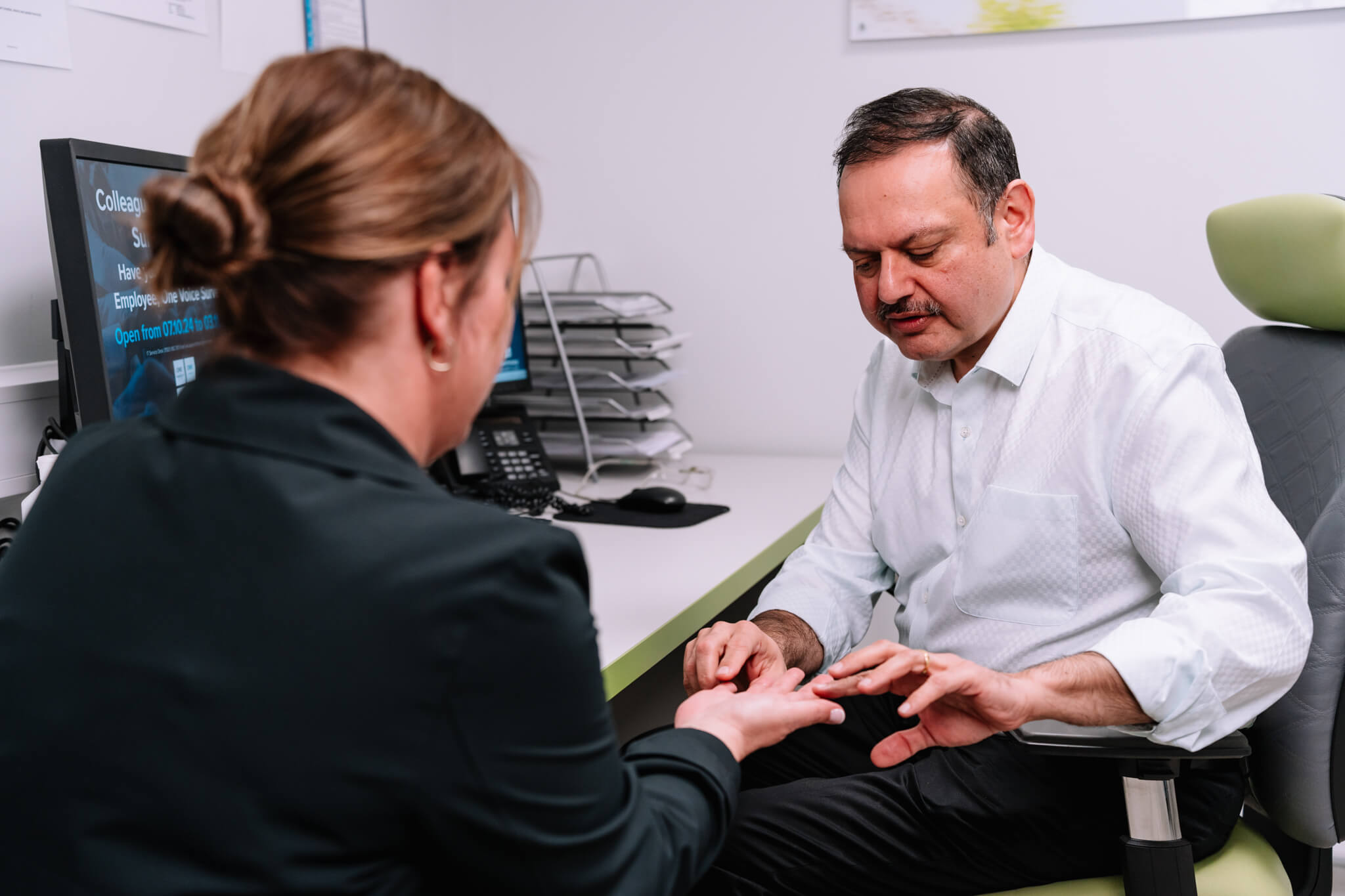Rivers Hospital Specialists
-
Mr Charles H Aldam
Mr Aldam is a Consultant Orthopaedic Surgeon in Hertfordshire specialising in joint replacements, revision hip and knee surgery, arthroscopy, back problems and sciatica
Read more -
Mr Paul Allen
Mr Paul Allen is a Consultant Orthopaedic Surgeon in Sawbridgeworth, Hertfordshire who specialises in knee replacements.
Read more -
Mr David George
Mr David George is a Consultant Orthopaedic surgeon with a special interest in hip and knee surgery.
Read more -
Mr Rashid Khan
Mr Rashid Khan is a Consultant Orthopaedic Surgeon specialising in hip replacements and all knee disorders including knee replacements, trauma, sports injuries and anterior cruciate ligament ruptures.
Read more -
Mr Dennis Kosuge
Mr Kosuge is a Consultant Trauma and Orthopaedic Surgeon in Hertfordshire, with a subspecialist interest in hip and knee surgery.
Read more -
Mr Satish Kutty
Consultant Orthopaedic Surgeon, Mr Kutty, specialises in hip and knee disorders including trauma, sports injuries of the hip, hip and knee replacements in young adults.
Read more -
Mr Jeh Mahaluxmivala (Mr Jeh Maha)
Mr Jeh Mahaluxmivala (pronounced ma-ha-lux-mi-vala) known as Mr Jeh, is a Consultant Orthopaedic Surgeon in Sawbridgeworth with a special interest in knee and hip surgery
Read more -

Mr Unnikrishnan Ramkumar
Mr Ramkumar is a Consultant Orthopaedic Surgeon in Sawbridgeworth, Hertfordshire who specialises in hip and knee procedures in Sawbridgeworth, Hertfordshire
Read more


